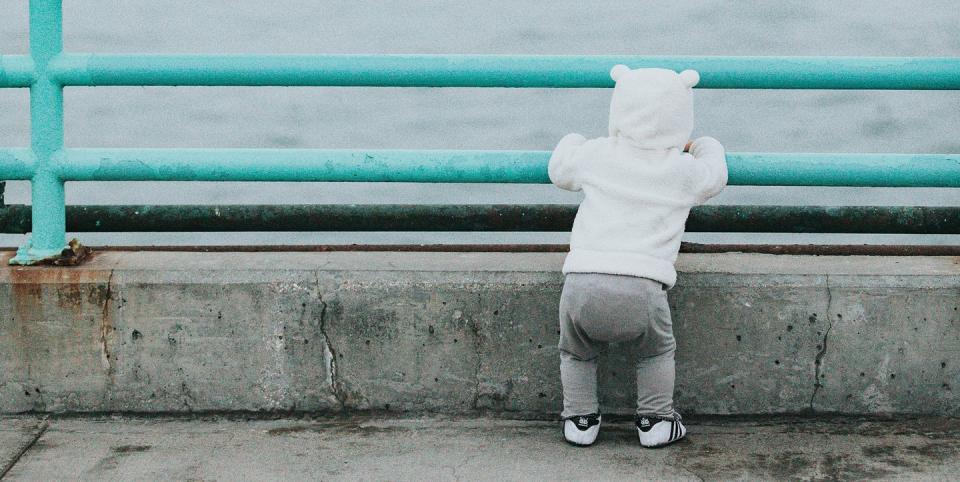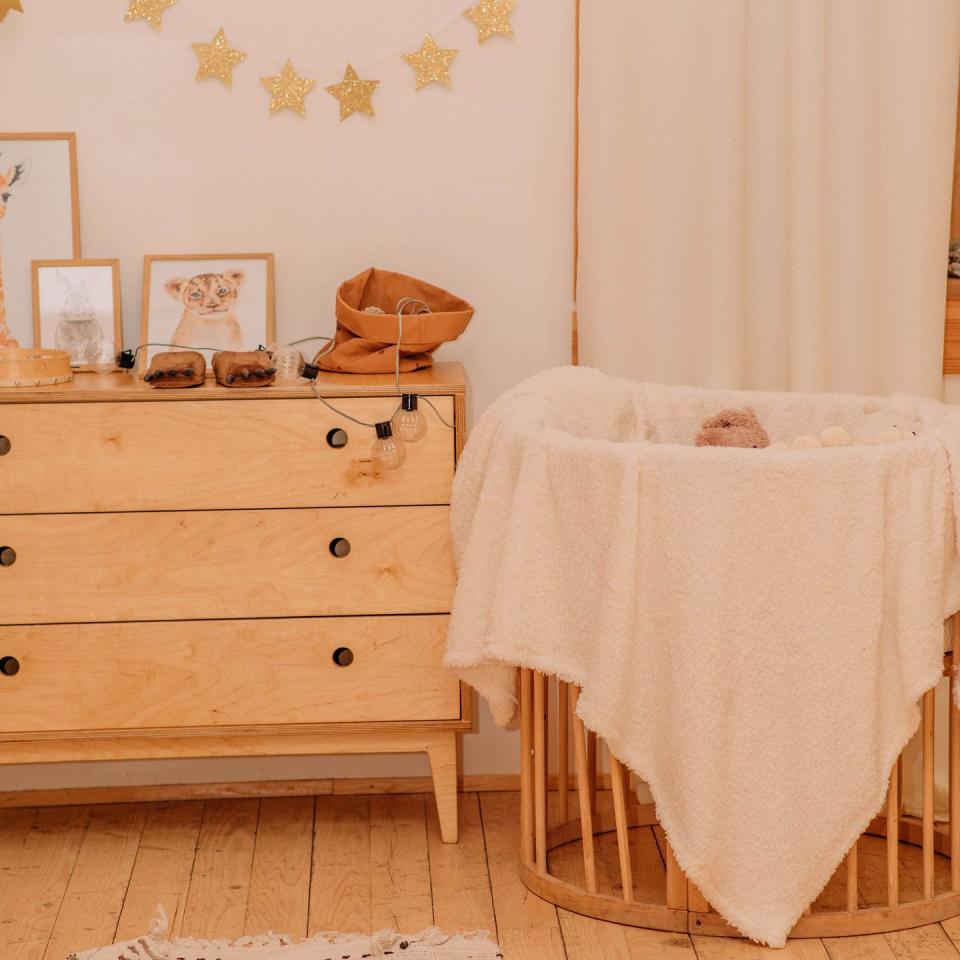Women are sharing reasons for freezing their eggs

Elisabeth Clare, 35, always expected that she would have children. She had a thriving physiotherapy business, a good relationship, and a dog that she adored. But when lockdown hit her plans to start a family were put on hold.
'The last year-and-a-half of my relationship has been spent in lockdown, which has curtailed a huge number of the life experiences that my partner and I wanted to do together,' she says. 'We want to travel and enjoy our time together before we change our lives by having children.'
For Elisabeth, who has now been with her partner for three years, the pandemic took away precious time to build her relationship, spend with friends, and fit in all of the career and life experiences that she longed to tick off before having a child. She’s now decided that she wants to make up for lost time by enjoying a few more child-free years. After months of agonising over whether she would still be able to start a family with ease further down the line she made a decision.
'I was sending myself mad over whether I wanted kids or not,' she says. 'Two female friends in their forties clarified my decision. They shared their experiences of waiting and realising too late that they wanted children. Both said that if they were me, they would freeze their eggs.'
Elisabeth then began the unusual process of egg freezing during the pandemic. Appointments initially took place remotely, and she eventually visited a fertility clinic and had five eggs extracted, three of which were mature enough to fertilise. Although she is disappointed that doctors weren’t able to retrieve more viable eggs, she now feels that the urgency of rushing into motherhood has been alleviated, and hopes to do another round of egg freezing to boost her chances of eventually conceiving.

Elisabeth is far from alone in thinking about prolonging her fertility during lockdown. Research suggests that the pandemic has sparked a wave of women considering technology-aided methods of trying for a baby, with 6 in 10 women of childbearing age reporting being anxious about their chances of having a family due to the COVID crisis.
For women such as Elisabeth the problem comes down to lost time, but for others the relentless pressure placed on women during numerous lockdowns has made them question their readiness for parenthood.
After all, women were disproportionately impacted by job losses and furlough, and those that continued to work throughout the pandemic were often left shouldering the burden of childcare as schools shut down and many of us shifted to working from home. With all of these economic and social constraints, it’s no surprise that 16% of those surveyed reported abandoning plans to have a child anytime soon altogether, as a direct result of the pandemic.
As well as reconfiguring many women’s financial positions and home set-ups, the pandemic also had a massive impact on their dating lives. Amal Fashanu, 32, found herself undergoing an egg freezing procedure after becoming concerned that lockdowns would limit her chance to meet a potential partner to parent with.
'When the pandemic happened it felt like so many things were unravelling,' she says. 'I was single and I knew that dating wouldn’t be an option for a while, but as a 32-year-old who has always wanted lots of children, I felt that I couldn’t keep waiting. I needed to take charge of the process in a way that made sense to me. I’ve always been very independent – getting my eggs frozen was purely my decision, for my body. The process has been very intensive, but I’ve had great support from friends.'
The rise in women seeking fertility treatments is something that has been noted by many medical professionals, with some clinics reporting a 50% increase in enquiries since the start of the pandemic. Dr Cesar Diaz-Garcia is the Medical Director of IVI London, a fertility clinic that has seen a 20% surge in egg freezing appointments since March 2020.
'We are seeing more and more single parents come to our clinic for fertility treatment,' he says. 'For people who want children, but haven’t found the right partner yet, the prospect of waiting another year can be worrying, and freezing eggs can be seen as a helpful back-up option. According to the Human Fertilisation and Embryology Association more single women than ever before are having fertility treatment, and I think this is a trend that is set to continue. Some couples may also be deciding that it isn’t the right time to have children, due to the economic effects of COVID-19 or the desire to make the most of restrictions lifting.'
Dr Diaz-Garcia notes that women shouldn’t see egg freezing as a fix-all solution. After all, the chances of conceiving using frozen eggs remains relatively low, and the standard storage period for eggs is only around 10 years. But for women like Elisabeth, the possibility of prolonging her fertility has offered some much-needed relief.
'It feels cool to know that my three egglets are there,' she says. 'I know it’s not a certainty that any egg freezing will result in a baby, but it’s taken the pressure off. I’m more sure than ever that I want kids – just not within the next couple of years!'
WHAT YOU NEED TO KNOW IF YOU’RE THINKING ABOUT FREEZING YOUR EGGS
Dr Cesar Diaz-Garcia, Medical Director at IVI London shares his key advice for considering egg freezing:
If you’re going to freeze your eggs you should do this sooner rather than later. Egg quality declines with age, and so it’s best to freeze your eggs before you turn 35.
Your lifestyle can improve your egg quality. By moderating your alcohol intake, eating healthy foods, sleeping well, and exercising you can increase the likelihood of successful egg freezing treatment.
Manage your expectations. Egg freezing is never a guaranteed success – women under 35 have a 16% chance of having a baby when five eggs are frozen, and for those over 35 there is a 6% chance. This increases to 50% with 20 eggs, so you might want to consider having multiple cycles to maximise your chances.
Don’t underestimate the emotional toll of fertility treatment. Get support, whether that’s from a friend, family member, or therapist. Some fertility clinics also have in-house counsellors who provide their services free of charge to all patients.
For free and impartial advice on fertility clinics, visit the Human Fertilisation and Embryology Authority website. The Fertility Network provides support for those going through IVF, dealing with fertility issues or living without children.
You Might Also Like

 Yahoo Finance
Yahoo Finance 